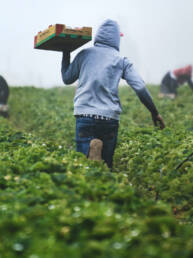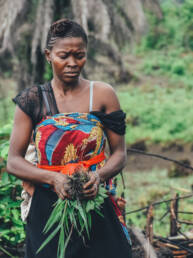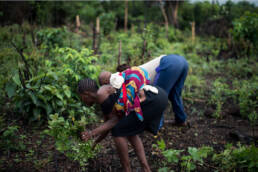Partnerships are seen as drivers for more inclusive and sustainable growth as they help to address challenges faced by low-income communities and advance the development of sustainable solutions. The inclusive agribusiness field has evolved rapidly over recent years, particularly since the 2008 world food crisis which pushed an estimated 130 million to 155 million people into poverty. We now have a wide range of interconnected initiatives being supported by individual businesses, governments, donors, NGOs, multilateral organizations, foundations, and research institutions.
Multi-stakeholder partnerships
NGOs play a key role of being the middleman and bringing both the public and private sectors together, they lead in organizing multi-stakeholder consultations with businesses, believing that sustainable development cannot be reached if excluding the participation of business from discussion and rulemaking. Given that NGOs are more trusted than governments, it puts them in a central position where the people on the ground are more receptive to the initiatives that they are implementing and because of the rich diversity of NGOs, they therefore play a more critical advocacy role on behalf of small-scale farmers and further play a key role of support with the multi-stakeholder partnerships.
In South Africa, NGOs work closely with other stakeholders in a bid to prevent the failure of many land reform projects. Realizing that the low-income communities face challenges that make it difficult to operate sustainably, business-NGO partnerships in most developing countries continue to strive to create access to technology, inputs, and markets for small-scale farmers.
Local and international NGOs have been working relentlessly with small scale farmers in the different provinces of South Africa and It may be argued that since macroeconomics is the primary focus of government, and similarly business might be focused on market issues, the NGOs will thus play a key role by ensuring that inclusive growth strategies for the farmers are executed in a sustainable manner considering environmental and social issues faced by small scale farmers. NGOs lead in organizing multi-stakeholder consultations with businesses, believing that sustainable development cannot be reached if excluding the participation of business from discussion and rulemaking.

In the Global South, national governments are always key players in MPSs
They are eager to engage in multi-stakeholder partnership agreements because of the lack of will and capacity on the part of many governments to engage in binding financial commitments to achieve global agreements, or to translate such existing commitments into practice. Most private businesses or MNCs have also been eager to form part of MSPs, the public sector realizes they need to partner with government and NGOs to create new market opportunities and to manage their operations in ways that create shared value. The private sector can benefit from MSPs in many ways, among others: new market opportunities, reputation and image enhancement, better risk management, access to development expertise and better links to governments.
However, is important to address that there are some limitations to the roles that the different stakeholders might play particularly the risk of an overwhelming influence of the private sector and the potential decision-making power private actors could gain on international political priorities and its financial commitments are widely criticized. This is precisely why several NGOs have viewed MSPs as the packaging of the neo-liberal paradigm and the promotion of agro- industrial and exported development in a discourse on sustainability and multistakeholder consultation.
Related Posts
July 5, 2022
Small Scale Farming: Base of Pyramid & Inclusive Growth Strategies
Central to the concept of inclusive business is the assumption that…




